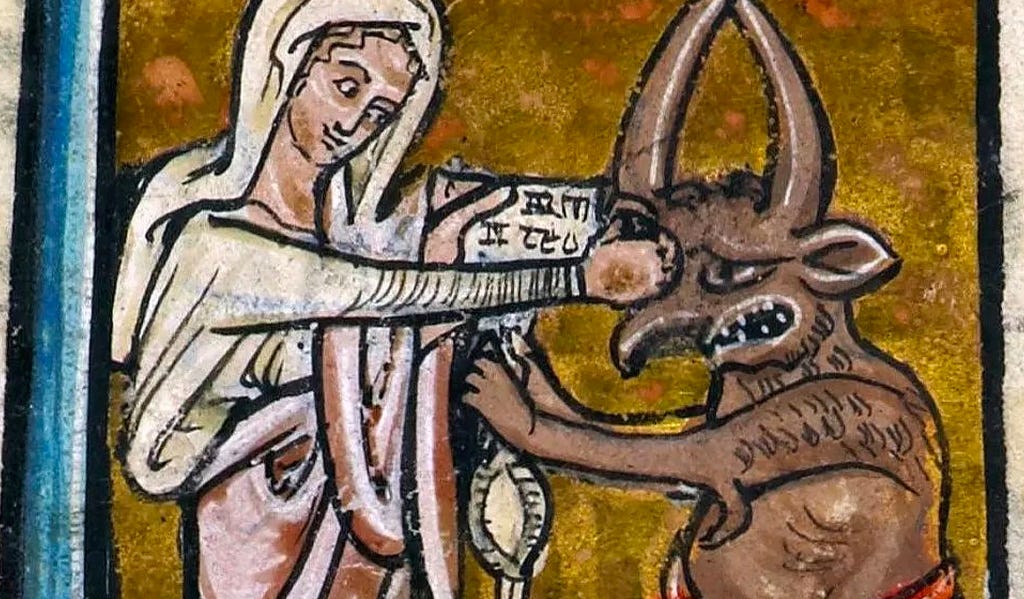Nicholas Russell is a writer from Las Vegas. We possess an increasingly stifled political language. We call Gaza a travesty, a horror, especially when “genocide” seems incapable of cutting through the noise. We call Covid a health crisis, yet one we somehow seem to have a firm handle on. It’s difficult to countenance a world as ignorant and benumbed as ours. Right now, amidst the steady acceleration of discourse and dismal pageantry surrounding both Republican and Democratic presidential campaigns, amidst a summer viral surge, amidst the unending extermination perpetrated in Palestine, amidst a deluge of bad art and even worse discourse around it, there is a feeling, palpable and all the more depressing because of its familiarity, that we are fucked. But there is a term, very old and yet very present, that we should reappraise and reintegrate into our understanding of the world if we are to have any hope of addressing its central rot: evil. The word, and the moral dimension inherent in it, accommodates a flexible yet incisive conception of the world’s myriad wrongs, both systemic and individual, spectacular and mundane. For most of my life, I would say that organized religion had little to no impact on me spiritually. It was a kind of weekly scaffolding that, in school, dictated when I went to church and when I said certain prayers and learned about certain Biblical events. But it all reduced down to background noise. It’s not that I hated church or God or religion. I just didn’t care, and so, in high school, when I stopped going to church and thinking about God completely, it was like sloughing off a shirt that never fit right. Except I never did completely lose what I would call a peripheral indignation at certain aspects of my surroundings (ironically learned in church). Which is to say, people didn’t stop being poor when I stopped going to church. War didn’t end, fascism didn’t die, bigotry didn’t wane, prejudice and callousness didn’t disappear. As a teenager, I thought that without the stultifying framework of religion obscuring my view of the world, I would be able to see things as they really were. In some senses, that was true: I certainly had a more profound understanding of the rot at the center of the Catholic church, the way that other conservative religions had injected a robust, life-darkening shame and self-hatred into my friends and classmates. But while it seemed easier to reject religion, it wasn’t so easy to reject faith. In this case, not just faith in God, but faith in other people, in their ability to organize for a change that seems impractical, if not impossible. For as many reasons as there are to be skeptical about or outright contemptuous of religion, there is something to be said for its ability to cogently structure moral and ethical principles. Such a necessary framework is missing from contemporary discourse. ... Subscribe to Mental Hellth to unlock the rest.Become a paying subscriber of Mental Hellth to get access to this post and other subscriber-only content. A subscription gets you:
|
